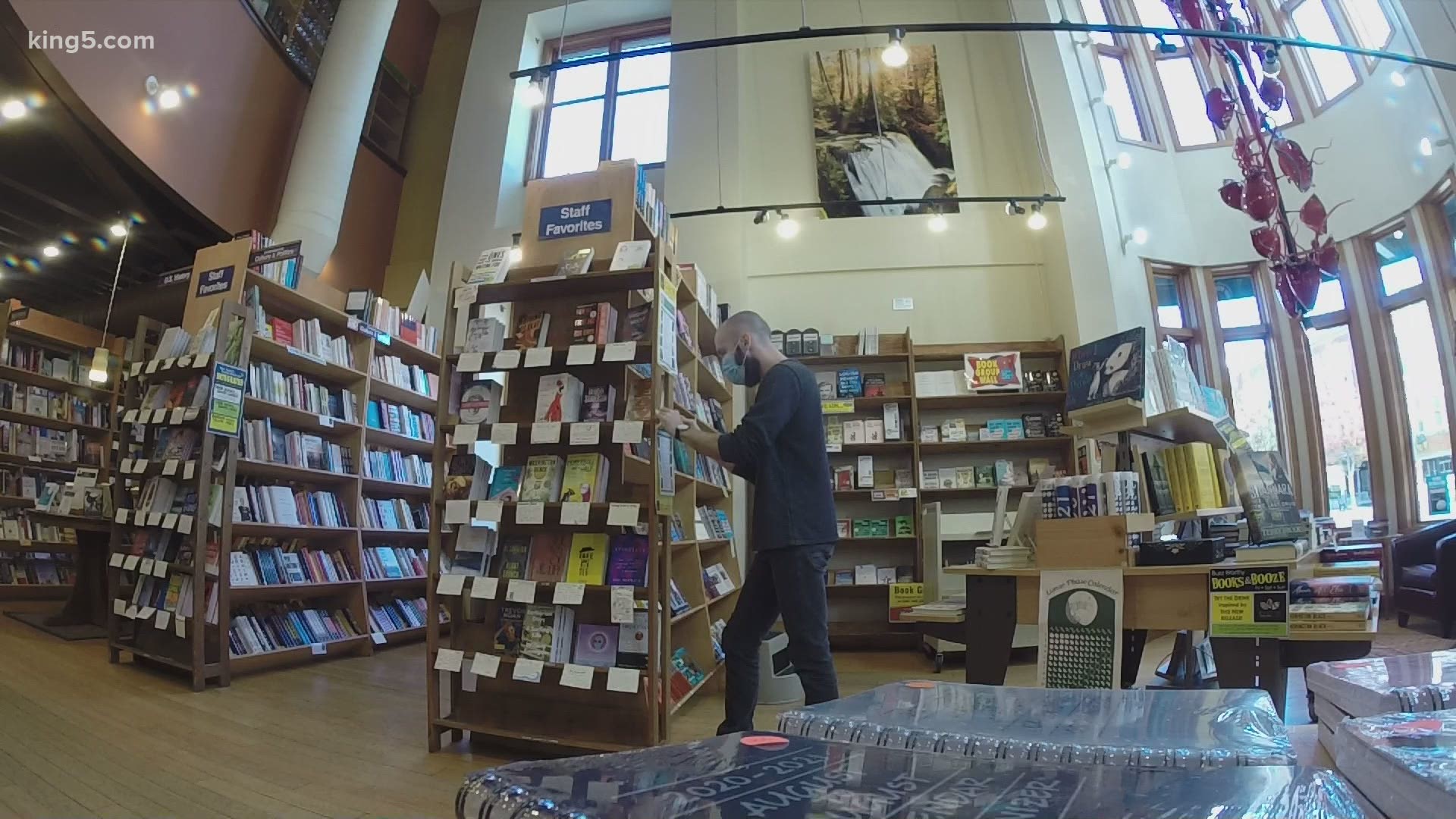BELLINGHAM, Wash. — Kelly Evert packs up her book bag and sets out on her bike. This is the future of delivery service for Bellingham’s Village Books.
“We’re not a big van,” she said. “We’re a great bike, and this is what we like to do.”
Like countless small businesses, Village Books is struggling during the pandemic and has had to adapt. Bicycle delivery is one of the ways Evert and her two co-owners are staying solvent.
“This place is the heart of this community,” said Evert. “I’ve been coming here since I was 18. It’s like home.”
While book sales are strong as people stay home, much of that profit has gone to Amazon, according to the American Booksellers Association (ABA).
The company has reported record profits since the pandemic began. The “convenience culture” spread by COVID-19 is gripping America like a big, comfy couch. But that convenience comes at a cost.
“If there are businesses that do go under because of this, the pandemic will be the cause, but the preexisting condition was Amazon,” said Village Books co-owner Paul Hanson.
Village Books is now part of a national campaign to turn the page on Amazon and convenience culture.
They’re filling their storefronts with brown cardboard signs claiming independent bookstores are being “#boxed out” by ubiquitous Amazon delivery trucks, and they’re making pleas to their community’s conscience.
If things continue the way they have been, Hanson laughed, “Well, we have some post-apocalyptic fiction upstairs that we’re going to be moving to our nonfiction section pretty soon.”
The ABA says, across the country, one independent bookstore is closing every week, and 20% may not survive the pandemic.
But to the folks at Village Books, it’s about much more than that.
“It’s the shoe stores, the hardware stores. When we are talking about Main Street as an institution it’s not just about the bookstore. The bookstore can be the heart, but Main Street is our community,” said other co-owner Sarah Hutton.
The American Independent Business Alliance notes shopping at a locally owned business generates three times more economic benefit to a community than shopping at a chain.
But Amazon is also one of the few bright spots in an otherwise dark Washington economy, employing more than 50,000 people.
The question, asked Hanson, is that what it’s all about?
“I understand this is capitalism,” he said, “but our mission is building community one book at a time. That’s our purpose. Conversely, you could say Amazon’s mission statement is destroying community one click at a time.”
An Amazon spokesman declined to comment on the #BoxedOut campaign, but told KING 5, “Almost 60% of all the items sold on Amazon are sold by independent, small or medium-sized businesses.”
He called it a “win-win” adding, “Amazon is on course to invest $18 billion this year to help those businesses with logistics, tools, programs and people.”
With the final chapter of this American story yet to be written, Kelly Evert climbed back on her bike for another run, hoping small businesses will somehow be delivered from convenience culture.
“This place means everything to me. Not just my business or my livelihood, but as a place that’s always been here for me. I hope it’s here for many more years.”

